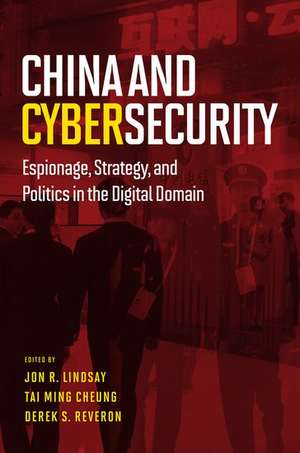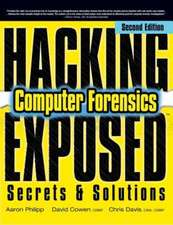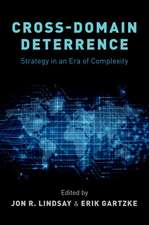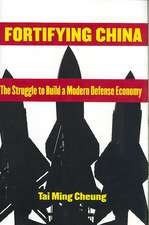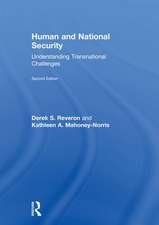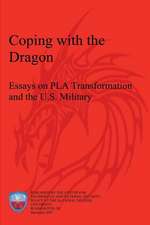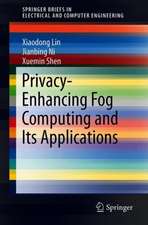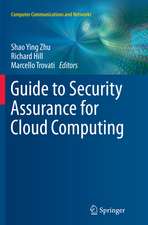China and Cybersecurity: Espionage, Strategy, and Politics in the Digital Domain
Editat de Jon R. Lindsay, Tai Ming Cheung, Derek S. Reveronen Limba Engleză Paperback – 16 apr 2015
| Toate formatele și edițiile | Preț | Express |
|---|---|---|
| Paperback (1) | 288.90 lei 31-37 zile | |
| Oxford University Press – 16 apr 2015 | 288.90 lei 31-37 zile | |
| Hardback (1) | 809.99 lei 31-37 zile | |
| Oxford University Press – 16 apr 2015 | 809.99 lei 31-37 zile |
Preț: 288.90 lei
Preț vechi: 411.44 lei
-30% Nou
Puncte Express: 433
Preț estimativ în valută:
55.30€ • 60.09$ • 46.48£
55.30€ • 60.09$ • 46.48£
Carte tipărită la comandă
Livrare economică 10-16 aprilie
Preluare comenzi: 021 569.72.76
Specificații
ISBN-13: 9780190201272
ISBN-10: 0190201274
Pagini: 400
Dimensiuni: 231 x 170 x 24 mm
Greutate: 0.58 kg
Editura: Oxford University Press
Colecția OUP USA
Locul publicării:New York, United States
ISBN-10: 0190201274
Pagini: 400
Dimensiuni: 231 x 170 x 24 mm
Greutate: 0.58 kg
Editura: Oxford University Press
Colecția OUP USA
Locul publicării:New York, United States
Notă biografică
Jon R. Lindsay's research examines the impact of technology on international security and strategy and has been published in leading academic journals such as International Security, Security Studies, Journal of Strategic Studies, and Technology and Culture. He holds a PhD in political science from the Massachusetts Institute of Technology and an MS in computer science and BS in symbolic systems from Stanford University. He is an officer in the U.S. naval reserve with seventeen years of experience including assignments in Asia, Europe, Latin America, and the Middle East.Tai Ming Cheung, director of the University of California Institute on Global Conflict and Cooperation, is a long-time analyst of Chinese and East Asian defense and national security affairs with particular expertise on the political economy of science, technology, and innovation and their impact on national security matters. Dr. Cheung was based in Asia from the mid-1980s to 2002 covering political, economic and strategic developments in greater China. He was also a journalist and political and business risk consultant in northeast Asia. Dr. Cheung received his PhD from the War Studies Department at King's College, London University.Derek S. Reveron is a professor of national security affairs and the EMC Informationist Chair at the U.S. Naval War College. He specializes in strategy development, non-state security challenges, and U.S. defense policy. He has published nine books including U.S. Foreign Policy and Defense Strategy: The Evolution of an Incidental Superpower (2015), Cyberspace and National Security: Threats, Opportunities, and Power in a Virtual World (2012) and Human Security in a Borderless World (2011). He received a a PhD in public policy analysis from the University of Illinois at Chicago.
